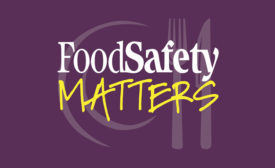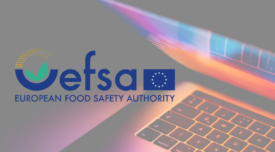Regulatory
Regulatory concerns include audits and inspections, government agencies, the pivotal Food Safety Modernization Act (FSMA), Hazard Analysis and Critical Control Points (HACCP), and international standards and guidances.
Topics
Audits are an important tool for verifying the safety and quality of a company's or facility's food products. Audits are conducted both internally and by certified third-party certification entities. The Global Food Safety Initiative (GFSI) is a private organization that benchmarks different auditing certification platforms as meeting its criteria to provide a harmonized umbrella certification.
FDA
The U.S. Food and Drug Administration (FDA) is responsible for regulating about 80 percent of the U.S. food supply, encompassing all foods and food ingredients introduced into or offered for sale in interstate commerce, except for meat, poultry, certain processed egg products, and catfish, which are regulated by the U.S. Department of Agriculture (USDA).
FSMA
The 2011 Food Safety Modernization Act (FSMA) gave FDA new authority to regulate the way foods are grown, harvested, and processed. FSMA grants FDA the authority to impose mandatory recalls and has paved the way for the issuance of more than a dozen rulemakings and at least ten guidance documents. FDA's New Era of Smarter Food Safety builds on the work done to implement FSMA.
Guidelines
Guidelines for industry include draft guidance from regulatory agencies and recommended practices for industry to help ensure the production of safe food that is free from contamination.
HACCP
Hazard Analysis and Critical Control Points (HACCP) is a management system in which food safety is addressed through the analysis and control of microbiological, chemical, and physical hazards from raw material production, procurement, and handling, to manufacturing, distribution, and consumption of finished products.
Inspection
Inspections cover many areas of food and beverage production, from farms and ranches to food processing facilities to restaurants. Inspectors are trained to ensure that facilities and equipment are in proper working order and properly sanitized, maintained, and permitted.
International Standards/Harmonization
Food safety standards vary by country and world region, and different aspects of food safety are regulated differently depending on the region. Harmonization and tightening of food safety standards around the world are important as emerging countries seek to improve quality of life by ensuring safer food for all people.
USDA
The U.S. Department of Agriculture (USDA) oversees meat, poultry, and egg products, accounting for 20 percent or less of the food supply. The majority of the food supply (80 percent or more) is regulated by FDA. USDA's Food Safety and Inspection Service (FSIS) ensures that the U.S. meat, poultry, and processed egg supply is safe and properly labeled.
ARTICLES
EVENTS
Webinar
7/13/23 to 7/13/24
Contact: Vania Halabou
Achieve Sanitation Effectiveness with a Robust EMP
Webinar
9/6/23 to 9/6/24
Contact: Vania Halabou
FDA's Food Traceability Rule: Going Beyond Regulatory Compliance with Ambient IoT
Webinar
2/22/24 to 2/22/25
Contact: Vania Halabou
Applied Root Cause Analysis: Using Your Results to Effectively Manage Risk
Webinar
4/9/24 to 4/9/25
Contact: Vania Halabou
The Ultimate FSMA 204 Playbook: Integrating Traceability, Quality, and Food Safety
Webinar
4/30/24 to 4/30/25
Contact: Vania Halabou
Ahead of the Curve: Managing Global Pesticide Maximum Residue Levels
Sponsored Webinar
7/25/24 to 7/25/25
Contact: Vania Halabou
How Rapid Development of Technology Has Revolutionized Food Safety
Never miss the latest news and trends driving the food safety industry
eNewsletter | Website | eMagazine
JOIN TODAY!Copyright ©2024. All Rights Reserved BNP Media.
Design, CMS, Hosting & Web Development :: ePublishing









